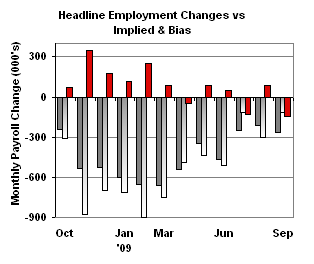[I]�America and Britain must be very worried. You will know how worried by the thunder of denials this news will generate.�[/I]
[B]�Robert Fisk�s Chinese Banking Source[/B]
[B]Oil States Say No Talks on Replacing Dollar[/B]
[I]Denial of News one Post below.[/I]
Via: [B]Reuters[/B]:
Big oil producing nations denied a British newspaper report on Tuesday that Gulf Arab states were in secret talks with Russia, China, Japan and France to replace the U.S. dollar with a basket of currencies in trading oil.
The dollar eased in response to the report, which was written by The Independent�s Middle East correspondent Robert Fisk and cited unidentified sources in Gulf Arab states and Chinese banking sources in Hong Kong.
It said the proposal was for trade in crude oil to move over nine years to a basket of currencies including the Japanese yen, the Chinese yuan, the euro, gold and a new, unified currency planned for nations in the Gulf Co-operation Council, which includes Saudi Arabia and Kuwait.
The report coincides with a wider debate on the role of the dollar as the world�s reserve currency, which has come under question. For most of this decade, the United States has struggled to maintain the dollar�s value.
But top officials of Saudi Arabia and Russia, speaking on the sidelines of International Monetary Fund meetings in Istanbul, denied there were such talks. The two countries are the world�s largest and second-largest oil exporters.
Asked by reporters about the newspaper story, Saudi Arabia�s central bank chief Muhammad al-Jasser said: �Absolutely incorrect.� He repeated the same response when asked whether Saudi Arabia was in such talks.
Kuwait�s oil minister and a well-placed source in the Organization of the Petroleum Exporting Countries made similar remarks. Russia�s deputy finance minister Dmitry Pankin said: �We did not discuss this at all.�
The dollar slipped in the wake of the newspaper story. The euro edged up as high as $1.4749, although it fell back to $1.4701 when the Saudi Arabian and Russian officials denied the report. Oil prices rose above $71 a barrel on Tuesday.
Algerian Finance Minister Karim Djoudi told Reuters: �Oil producing countries need to stabilize revenues but�I don�t see a need for oil trade to be denominated differently.
�But we are at the IMF conference where all sorts of subjects are raised and discussed,� he added.
[B]�NOT LIKELY�[/B]
Analysts said that while individual countries would find it relatively easy to stop using the dollar in oil trades, as Iran has done, replacing the currency in which oil is priced would require a massive effort.
The newspaper story did not make clear how the change would work, and many analysts doubted it would occur any time soon.
�I don�t think this is a likely scenario in the short to medium term,� said Carsten Fritsch, oil analyst at Commerzbank in Frankfurt. �Without Saudi Arabia�s support it is difficult to imagine that the dollar will be replaced.�
Saudi Arabia and some other Gulf states peg their currencies to the dollar.
Russia has in the past raised the idea of shifting its oil trade away from the dollar, which has been undermined by the U.S. trade and budget deficits. China has suggested that in the long term, the dollar should lose its role as the globe�s top reserve currency.
But strong political links between Gulf nations and the United States, as well as the lack of convertibility for many Gulf currencies and the yuan top the list of practical hurdles to replacing the dollar.
�If there was already a significant proportion of global oil trade being priced in non-U.S. dollar now, than perhaps there would be more pressure to price crude in another currency,� said Victor Shum, analyst at Purvin & Gertz in Singapore. �But we�re still far from that.�
�WORTHLESS PIECE OF PAPER�
Iran, which a few years ago began increasing its sales of oil in currencies other than the dollar, has made a huge profit from the policy, Central Bank Governor Mahmoud Bahmani was quoted as saying on Tuesday.
Iranian President Mahmoud Ahmadinejad has called the U.S. currency a �worthless piece of paper.� The Islamic state is under U.S. and U.N. sanctions over its disputed nuclear programme.
The Independent�s story said: �Secret meetings have already been held by finance ministers and central bank governors in Russia, China, Japan and Brazil to work on the scheme, which will mean that oil will no longer be priced in dollars.�
France had also been involved in the talks, it said.
The Independent said U.S. authorities were aware that the meetings had taken place but had not discovered the details and were �sure to fight this international cabal.�





